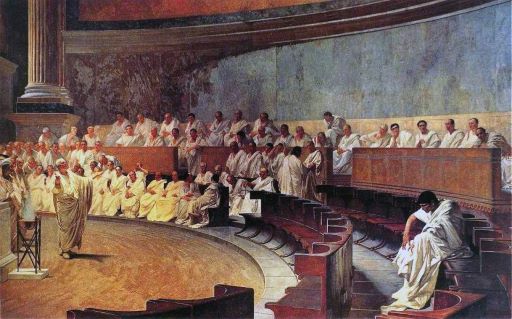Liberty Matters
Conversation Isn’t Hegemony

Jennifer Frey observes that “the whole concept of higher education rests upon the notion that we are made for more than a life of work…. A higher and truly liberal education helps us, at minimum, to think about who and what we are and what we sort of person we should want to become; for without some understanding of this, we are unable to live well: to think, choose, and act in a manner that exemplifies human flourishing.”
I agree with this, of course. What’s astonishing is how many people disagree. On the one hand, we have those who denigrate liberal learning as impractical and hence a waste of time and resources, and on the other hand, we have those who caricature liberal learning as oppressive. It’s hard to decide which of these is missing the point harder, but clearly they both are missing the point. Perhaps coincidentally, the former misunderstanding is mostly common on the traditional right and the latter on the left. While one might expect the traditional right to embrace classics because tradition is to be venerated, there’s also an antipathy to the mind-expanding virtues of liberal learning, the inquisitiveness that characterizes its practitioners. And ultimately, there’s the waste-of-resources argument: sure, a little Aquinas will keep you on the straight and narrow, but whether it’s family money or taxpayer money, surely the whole point is “ROI.”
But equally puzzling is the left’s assumption that to care about Aristotle or Thucydides is to engage in oppressive cultural hegemony - as if all the classical authors share the same view. Aristotle doesn’t even agree with Plato, to say nothing about dozens of other thinkers of antiquity, not only in Greece and Rome, but also in India and China. It’s not as though there’s this single thing called “Greek thought” or “Indian thought” – what we see instead is many different schools of thought, often in dialogue with each other. To learn about those conversations is the opposite of cultural hegemony, it’s the very essence of open-mindedness.
Anika Prather emphasizes that the value of the classics is tied to our shared humanity. In other words, objecting to the classics because they’re parochial is as mistaken as one can get. Although we’re different individuals living in different times and places, we’re all human beings, so there are some things about humanity that transcend culture. I appreciated the metaphor of the watering hole – while the creatures in the jungle eat different things, they all drink water. Prather notes that “Black people were able to find refreshment at the same watering hole that the Founding Fathers” and others did, and by “drinking from this same water source, many were able to engage in a dialogue which gave space to be heard.” That seems to me to be exactly right: we can engage in trans-cultural dialogue precisely because there are some trans-cultural realties, starting with our shared humanity. She rightly characterizes this as joyful, as well as being something that promotes, rather than hinders, equality.
Copyright and Fair Use Statement
“Liberty Matters” is the copyright of Liberty Fund, Inc. This material is put on line to further the educational goals of Liberty Fund, Inc. These essays and responses may be quoted and otherwise used under “fair use” provisions for educational and academic purposes. To reprint these essays in course booklets requires the prior permission of Liberty Fund, Inc. Please contact oll@libertyfund.org if you have any questions.